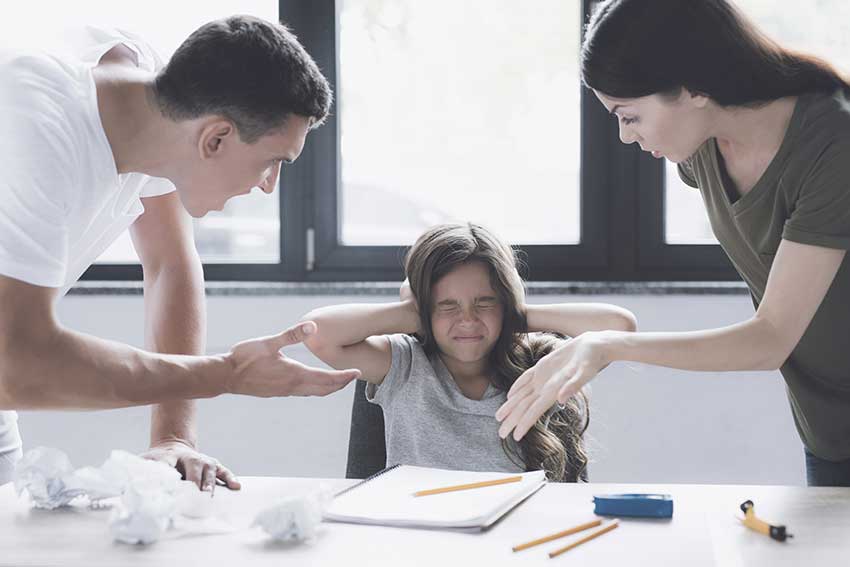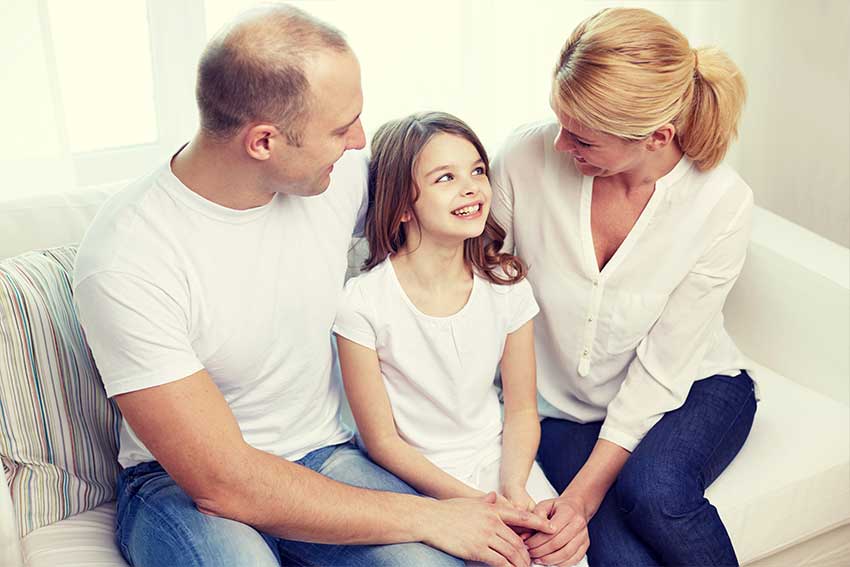 We’re talking about your yelling, not theirs
We’re talking about your yelling, not theirs
Almost all parents yell at their kids. Some of us are better at keeping our voices down than others, but we are all yellers or reformed yellers… or both.
Social media memes celebrate and mock yelling:
‘My kids call it “yelling” when I raise my voice. I call it motivational speaking for the selective listener.’
‘Don’t yell at your kids! Lean in real close and whisper, it’s much scarier.’
Let’s face it though; yelling feels terrible. Most parents also admit it rarely works. And research shows it’s bad for our kids.
How can that be?
When parents use yelling as a way to discipline, studies show increased behavioural problems, anxiety, stress and depression. Yelled-at kids also have lower self-esteem, and a higher risk of developing psychological problems in the future.
Without getting too technical, it’s important to mention that these studies are correlational. So it could be that yelling leads to these issues. Or it may be that kids with behavioural problems, anxiety, stress, and so on make their parents yell! (Or perhaps there’s something else that causes both yelling and behavioural problems… such as alcohol and drugs, low education levels, or poverty.)

But what research shows quite clearly is that yelling doesn’t work. Researchers have found that yelling seldom alleviates a problem. In fact, as soon as you begin to raise your voice your child’s brain is catapulted into the fight-or-flight response. They freeze up, fight back or run away. It’s almost impossible for them to actually listen to us.
With our kids around a lot more these school holidays, those of us in the habit of yelling are going to be doing it a lot more too. So, how can we stop yelling? How can we become reformed yellers?
First, remember it’s not about your child, it’s about YOU
As parents, we sometimes yell because we’re getting pulled in a million different directions and then something happens and it’s just the final straw. Or we’ve already asked our child to stop pinching his sister 14 times! Or we just lose our cool.
This is when we need to remember that this is about US. Yelling doesn’t happen out of the blue – it is usually triggered by something (asking multiple times, prepping dinner or rushing out in the morning). If we can learn to recognise our triggers, we can stop them from launching us into anger and yelling.
Second, be calm and kind
When I’m starting to get upset there’s a mantra that I use: ‘I’m going to be calm and kind.’ When I repeat this to myself, it reminds me of the kind of parent I want to be and helps me to better regulate my own emotions. Find a mantra that works for you and repeat it when you find your emotions rocketing from 0 to 100.

Third, focus on helping, not hurting
When your child is pushing all your buttons, take a deep breath and look them in the eyes. Ask yourself, what are they going through? Why aren’t they listening? What is happening inside this little human (that you love!) and how can you help them?
Just turning your focus onto helping your child can help you to calm down and stop yelling.
And here’s a bonus tip: unless there is a genuine physical impairment, your kids are not deaf. Speak softly. They’ll listen harder. A gentle tone and a soft voice are nicer to listen to.
Life can get difficult. If you find that you’ve slipped up and yelled, forgive yourself, hug your little one and start again. And remember that that good parents aren’t perfect – good parents are just trying their best.
Related articles:
